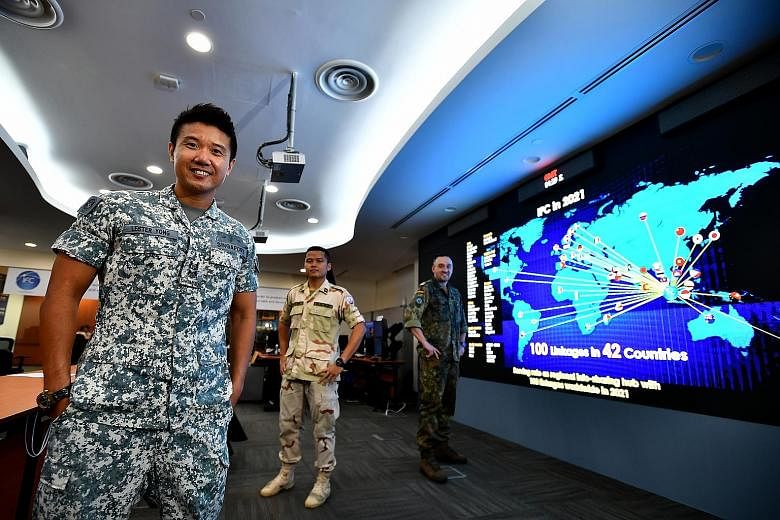Keeping the sea safe protects Singapore's supply lines and sovereignty, but requires close cooperation both between agencies here and with other states, said Senior Minister of State for Defence Zaqy Mohamad yesterday.
Maritime cooperation with other countries also helps Singapore gain naval information against piracy and other interest areas such as commercial shipping and to curb trafficking, added Mr Zaqy, who was visiting the Singapore navy's Maritime Security Task Force (MSTF) and Maritime Security Command at Changi Naval Base.
Singapore has, in turn, shared the intel it had gathered, and this exchange helps the Republic become a maritime security hub, he said.
There were three incidents of armed robbery against ships in Asia last month, the Regional Cooperation Agreement on Combating Piracy and Armed Robbery against Ships in Asia (ReCAAP) Information Sharing Centre said yesterday.
Of the three, two were reported in the Singapore Strait, in the eastbound lane of the Traffic Separation Scheme. It brought the total number of cases in the key waterway to five so far this year.
The number of piracy and armed robbery cases in the Singapore Strait last year hit its highest mark in half a decade, with 34 incidents.
Mr Zaqy noted that the increase in piracy cases last year happened during the pandemic, and he suspects that "a large part of it is also due to economic downturn and people looking for opportunities".
"If you look at the kind of threats that we are having, the 34 cases were, although they call it Singapore Strait, actually out of Singapore waters and actually in our neighbouring territories," he said.
Bodies like the Information Fusion Centre (IFC) hence play key roles in passing information on to neighbouring countries to help them arrest the perpetrators, said Mr Zaqy, who was accompanied on his visit by the Chief of Navy, Rear-Admiral (RADM) Aaron Beng, as well as RADM Yong Wei Hsiung, the MSTF commander.
To jointly tackle maritime threats, the MSTF works closely with other maritime agencies and international partners, through the IFC.
The IFC is a regional body which facilitates information sharing between countries, and liaises with international navies, coast guards and maritime agencies to respond to maritime threats, such as piracy, and maritime terrorism.
It was formed in April 2009.
Lieutenant-Colonel Lester Yong, who heads the centre, stressed that maritime security cannot be the responsibility of a single country or agency, and that the Singapore Strait accounts for over 70 per cent of the world's maritime trade flow.
Last year, the IFC dealt with 1,919 maritime security incidents within the area, including 113 cases of theft, robbery and piracy at sea, 465 cases of illegal fishing, and 895 maritime incidents such as weather-related accidents.
The IFC also hosts international liaison officers, who are posted here for typically between six months and three years, and help extend the information network of the set-up.
The centre's area of interest runs from the Indian Ocean to north Asia and down to the northern tip of Australia.
Lieutenant Commander Christian Hegering, the first liaison officer to be posted here from Germany, said working together is key as "water doesn't have real physical borders" and all countries are impacted by developments in global supply chains.
Lieutenant Sok Sal, a Cambodian liaison officer who has been at the IFC for 2½ years, said that while disagreements do happen due to differing views of various countries, a consensus is always reached, given the broadly aligned interests in ensuring maritime security in regional sea lanes.


